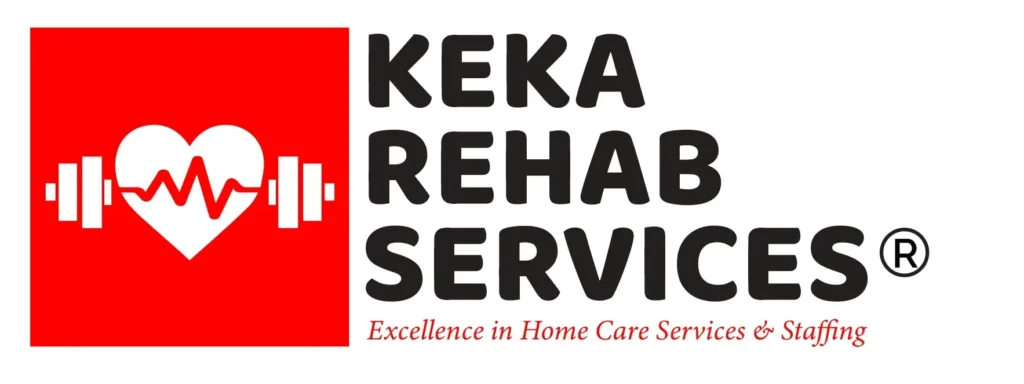Did you know that by 2030, one in every five Americans will be 65 or older? This fact shows we need more geriatric care. As people live longer, we must offer support that meets their unique needs.
Geriatric care includes many services to improve the lives of older adults. It helps with chronic conditions and encourages healthy living. This healthcare focuses on the complex needs of people over 65.
Seniors face many challenges. They often deal with diseases like diabetes, high blood pressure, and heart disease. They also worry about falling, losing memory, and feeling sad or anxious.
Geriatric care teams, including doctors, nurses, and managers, help seniors. They manage chronic diseases, organize services, and support their well-being. They also focus on nutrition, preventing falls, and exercise for seniors.
The need for geriatric care is rising. It includes services like in-home care and special memory care for those with dementia. The field is changing to meet the needs of our ageing population.
Key Takeaways
- Geriatric care targets individuals aged 65 and above
- Chronic disease management is a critical focus in geriatric care
- Multidisciplinary teams provide comprehensive care for seniors
- Mental and emotional well-being are crucial aspects of elderly care
- Specialized services address unique needs like fall prevention and nutrition
- The demand for geriatric care is increasing with the aging population
Understanding Geriatric Care: A Comprehensive Overview
Geriatric care focuses on the unique health needs of older adults. As people age, their medical requirements change, needing specialized care and support. The growth of the elderly population has led to a higher demand for geriatric services in healthcare settings.
Defining Geriatric Care and Its Importance
Geriatric care includes medical, social, and personal services for older adults. It’s vital because the elderly often face many health challenges. 9 out of 10 Americans aged 80 or older have at least one chronic condition.
Critical Components of Compassionate Senior Support
Compassionate senior support includes:
- Regular health screenings
- Medication management
- Nutritional support
- Fall prevention measures
- Mental health care
These elements are crucial. 88% of older adults take at least one prescription drug, with 36% taking five or more. Also, up to 28% of older adults fall at least once a year, leading to high healthcare costs.
The Growing Need for Specialized Elderly Assistance
The need for assistance for the elderly is increasing due to demographic changes and longer life expectancies. This is seen in the 16.7% increase in elderly hospitalizations from 2003 to 2009 in the U.S. Senior living facilities and ageing support services are adapting, offering various options, from assisted living to skilled nursing care.
In-Home Services: Preserving Independence for Seniors
Support for ageing seniors now focuses on keeping them independent at home. Many older adults like to stay in their homes, surrounded by familiar things and memories.
Home-Delivered Meals and Nutrition Services
Good nutrition is key to seniors’ health. Home meal delivery services ensure that older adults get meals that fit their health needs. These services also give seniors who live alone regular social time.
Home Health Care Options
Home health care offers help for both short-term recovery and long-term needs. These services include personal care, cleaning, cooking, and health support. Family members often help out, but professional services are available when needed.
Most seniors will need some care after they turn 65. That’s why home care services are so crucial for keeping them independent. These services help seniors stay home longer by supporting them with everyday tasks and health needs.
Home Modifications for Safety and Accessibility
It’s important to make homes safe and easy to move around in for ageing seniors. Some common changes include:
- Putting in grab bars in bathrooms
- Adding ramps for easy entry
- Making lighting better throughout the house
- Widening doorways for wheelchairs
Planning these changes early lets seniors set up their homes for future needs.
When considering staying in their homes, seniors consider things like getting around quickly, keeping up the house, support, and health conditions. Talking to a geriatric care manager can help make a care plan and find resources for everyday life, especially if the family is far away.
Navigating Healthcare Options for Older Adults
Knowing about your healthcare choices is vital to staying healthy as you age. Medicare is the primary insurance for people over 65, and Medicaid helps low-income people. These programs offer various levels of support for older adults.
Medicare has four parts, each covering different services:
- Part A: Hospital insurance
- Part B: Medical insurance
- Part C: Additional services
- Part D: Prescription drug benefits
Most medical practices in the U.S. accept Medicare, making healthcare accessible to access for seniors. But, healthcare costs can be high, often taking up to 15% of a retiree’s income.
For full support, consider Medicare Advantage plans or private insurance for seniors. These plans might cover services not in traditional Medicare or Medicaid, giving more care options.
When choosing healthcare, learn about premiums, deductibles, copayments, and out-of-pocket maximums. Check your plan choices often and get expert advice to ensure you get the best care for your needs.
Geriatric Care: Professional Support and Specialized Services
Geriatric care offers tailored support for seniors, focusing on their unique health needs. Professional teams work together to provide comprehensive elderly assistance, ensuring the best quality of life for older adults.
Interdisciplinary Geriatric Care Teams
Geriatric care teams include doctors, nurses, therapists, and social workers. They work together to address the complex needs of older adults. To become a Certified Geriatric Care Informed Professional, one must have at least 18 hours of specialized education and four years of experience with geriatric patients.
Primary Care for Adults 80 Years and Older
Primary care for seniors over 80 involves regular check-ups and health monitoring. These services often include home health care visits, medication management, and specialist coordination. Geriatric nurses are critical in this care, earning an average annual salary between $68,791 and $70,585.
Specialized Care for Neurological Conditions in Seniors
Seniors with neurological conditions need specialized care, including support for dementia, Parkinson’s disease, and stroke recovery. Geriatric nurse practitioners who often provide this care earn between $100,356 and $124,283 annually. They undergo extensive training to meet the unique challenges of neurological care in older adults.
Geriatric care professionals must continually update their skills. Certification renewal requires 12 clock hours of continuing education every two years. This ongoing learning ensures seniors receive the most up-to-date and effective care possible.
Senior Living Options: From Assisted Living to Nursing Homes
As you get older, your living needs might change. There are many senior living options, from assisted living to nursing homes. These options cater to different care needs. Let’s look at these choices to help you find the best fit for your lifestyle and health.
Assisted Living Facilities: Balancing Independence and Support
Assisted living facilities offer a mix of independence and support. They usually have 25 to 100 or more residents. They help with daily tasks but still let you be independent. You’ll find things like restaurant-style dining, fitness rooms, and libraries.
Some even have movie theatres and swimming pools.
Skilled Nursing Facilities: Comprehensive Care for Complex Needs
Nursing homes give 24/7 care for those with serious health needs. They offer nursing care, supervision, meals, and help with daily tasks. Medicare doesn’t cover long-term stays but might pay for some costs. Medicaid could cover part of the costs, depending on your state and if you qualify.
Continuing Care Retirement Communities: A Spectrum of Services
Continuing Care Retirement Communities (CCRCs) offer a unique approach. They offer different levels of care in one place, such as independent living, assisted living, and skilled nursing care. CCRCs ask for a one-time entrance fee and monthly fees later. This lets you move between care levels as your needs change.
By 2020, nearly 17% of the U.S. population was 65 or older. With more seniors, knowing your living options is critical. Use tools like Eldercare Locator (800-677-1116) or Medicare’s Care Compare to find and compare places near you.
Memory Care and Support for Dementia Patients
Dementia care is vital for seniors with memory problems. It offers exceptional support as the condition gets worse. In the early stages, assisted living can help those with dementia.

Memory care places offer services just for dementia patients. They provide personalized care, help with medications and daily tasks, and health expert visits15. These places have safe environments and special programs to improve the lives of seniors with memory issues.
Memory care units have trained staff and safety features for families looking at care options. A study showed that 91% of these units have activities for residents, and 90% have doors that alert staff if someone leaves15. These features give families peace of mind and keep their loved ones safe.
Memory care can be expensive, costing over $100,000 a year. Sometimes, families can pay with savings, insurance, or Medicaid15. Geriatric care managers can help find and access these services.
National groups like the Alzheimer’s Association offer support for dementia patients and their caregivers. Programs like the Centers for Medicare & Medicaid Services’ PACE might cover some long-term dementia care.
Palliative and Hospice Care: Comfort in Advanced Stages
Palliative and hospice care help people with serious illnesses. They aim to improve life and comfort people when things get tough.
Understanding Palliative Care Services
Palliative care helps people of all ages with serious illnesses like heart failure, cancer, or dementia. Doctors, nurses, and social workers work together to give complete care. They can help in many places, like hospitals or at home, so patients feel at ease.
Hospice Care: Compassionate End-of-Life Support
Hospice care is for people with a short life expectancy, six months or less16. It can be provided at home, in nursing homes, or in hospice centers16. Hospice teams provide medical, emotional, and spiritual support to patients and their families.
End-of-life care can last weeks or months17. It covers four main areas: ensuring patients are physically comfortable, supporting their mental and emotional health, meeting their spiritual needs, and helping with everyday tasks17. Managing pain is key, and caregivers ensure patients don’t become dependent on drugs.
Caregiver Support and Resources
Caregivers are key in palliative and hospice care. They manage symptoms, offer emotional support, and help with daily tasks. There are resources for caregivers, like training, support groups, and respite care. These help prevent burnout and let caregivers give the best care to the elderly.
Planning for end-of-life care improves patient satisfaction and ensures care matches patients’ wishes. Hospice patients’ families are usually happier with the care they receive.
Legal and Financial Planning for Seniors
Planning for your golden years is critical. It involves essential legal and financial decisions. Getting advice from certified experts is a smart move. The Certified Financial Planner (CFP) Board has a tool to find advisors for your senior living plans.
When picking a financial planner, check their credentials and past disciplinary actions. The CFP Board shares this info, including any bankruptcy details, to aid your choice. Talking to several planners is crucial to finding the best one for your needs.

For detailed financial planning on long-term care, look into free online resources. Some sites offer tools and info to help with senior living choices at no cost. These platforms can give insights into affordable care options and connect you with family advisors for tailored advice.
While online tools are helpful, sometimes you need professional advice for complex financial planning. Some advisors charge by the hour or for specific projects. Spend time finding the right expert to ensure your ageing support plans are robust and fit your needs.
Transportation and Mobility Services for Older Adults
Keeping seniors mobile is vital to their happiness and freedom. As we get older, getting around becomes harder. That’s why there are special services for older adults to help them stay active and connected.
Senior-Friendly Transportation Options
Many places have special transport for older folks. In Florida, Medicaid covers non-emergency rides for its members. The Alzheimer’s Disease Initiative and Community Care also offer rides to places seniors need to go. You can find local rides on websites like Find a Ride Florida, which lists services in all 67 counties.
Safe Driving Programs for Elderly Individuals
If you’re still driving, keep your skills up. AARP Driver Safety has an online course for older drivers. The GrandDriver Program also teaches safe driving and adjusting to not moving. These programs help seniors stay safe on the road.
Community-Based Transportation Services
For those who can’t drive, community services are a big help. You need to book demand response services 24 hours ahead, and some taxis have vans for seniors 2. The National Aging and Disability Transportation Center helps improve transport for seniors and people with disabilities. These services are vital to getting to doctor’s visits and social events.
FAQ
What services are included in geriatric care?
Geriatric care offers many services for seniors. These include home meals, nutrition classes, and help with Medicare. It covers housing, legal advice, home changes, memory care, transport, and elder abuse reporting.
What is the role of State Health Insurance Assistance Programs (SHIP)?
SHIP gives one-on-one insurance advice to Medicare users and their families.
What are the critical components of geriatric care?
Critical aspects of geriatric care include home visits, caregiver support, work with healthcare teams, and medicine management.
What are some examples of in-home services for seniors?
Necessary in-home services for seniors include meals, nutrition help, and health care. These services help seniors stay independent.
How does Stanford Home-Based Senior Care support older adults?
Stanford Home-Based Senior Care provides primary care to seniors who cannot leave their homes. This means they don’t have to travel for check-ups.
What healthcare options are available for older adults?
Older adults have healthcare options like Medicare help, Medi-Cal, and special senior care services.
How does Stanford Health Care provide geriatric care?
Stanford Health Care has a team of geriatric experts. They offer primary care at home for seniors who qualify.
What services do interdisciplinary geriatric care teams provide?
Geriatric care teams offer full support. They do home visits, help caregivers, work with healthcare teams, and assist with prescriptions.
What are the different senior living options available?
Seniors have many living options, ranging from assisted living to skilled nursing facilities and continuing care retirement communities. Each option meets different care needs.
How does geriatric care support seniors with dementia?
Geriatric care for dementia includes memory care and support. It also covers care for neurological issues like dementia and cognitive problems. Home care is an option.
What services are provided by palliative and hospice care?
Palliative and hospice care offer comfort and support for severe illnesses. They focus on easing pain, managing symptoms, and supporting patients and families. Caregivers also get support and resources.
What resources are available for seniors’ legal and financial planning?
Seniors can find resources like “Seniors & the Law” and “Taking Care of Tomorrow.” These guides cover healthcare planning, Medicare, and financial tips for seniors.
How can transportation and mobility services support seniors?
Transport and mobility services help seniors stay independent. They offer senior-friendly transport, safe driving programs, and community transport for medical visits and social events.








